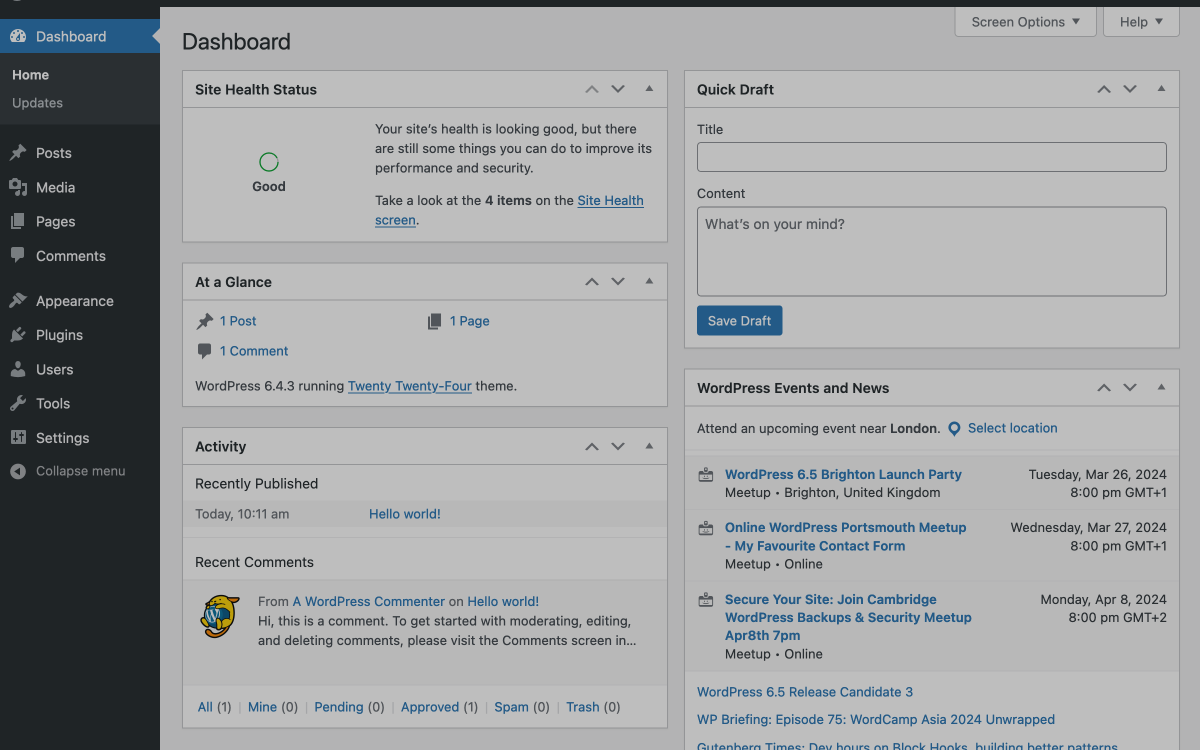
Last week, a major rift between WordPress and WP Engine, one of the leading managed WordPress hosting platforms, made headlines. The fallout centers around WordPress’s decision to block WP Engine from accessing key resources, leaving thousands of websites in a precarious position. Here’s what you need to know about the players, the conflict, and why it matters to WP Engine users.
Who Are the Players?
WordPress.org
WordPress.org is an open-source content management system (CMS) that powers over 40% of all websites globally, from personal blogs to major enterprise platforms. What makes WordPress.org unique is its community-driven development, where users and developers alike contribute to its ongoing evolution. At the helm of WordPress is Matt Mullenweg, one of its co-founders and a central figure in the WordPress ecosystem. Mullenweg is also the CEO of Automattic, the company behind services like WordPress.com (the hosted version of WordPress), WooCommerce, and Jetpack. While WordPress.org remains open-source, Automattic plays a significant role in its ecosystem, sometimes blurring the lines between Mullenweg’s leadership in the open-source community and his business interests.
Mullenweg’s leadership has come under scrutiny in the past for what some view as overreach or control over the WordPress community, despite the CMS’s open-source ethos. His strong stance against WP Engine, accusing them of eroding WordPress’s core principles, adds another layer of complexity to the ongoing debate.
WP Engine
A major player in the managed WordPress hosting space, WP Engine provides premium hosting services tailored to WordPress users, with features like enhanced security, speed optimization, and dedicated support. However, WP Engine’s modifications to the WordPress core—such as disabling post revisions to reduce server costs—have drawn criticism from Mullenweg and others, leading to a broader conflict about the company’s commitment to the WordPress open-source mission.
What Is the Conflict About?
The conflict stems from growing tensions between Mullenweg and WP Engine, with the following key issues:
- Disabling Core Features: WP Engine has been accused of disabling WordPress’s post revision feature to lower their hosting costs, which goes against WordPress’s promise of data integrity and transparency. Mullenweg has argued that this undermines the integrity of the platform, damaging trust in the community.
- Licensing and Trademark Violations: Another significant aspect of the conflict is Mullenweg’s accusation that WP Engine has been misusing the WordPress trademark, misleading users into thinking that WP Engine is synonymous with WordPress. Mullenweg claims that WP Engine’s commercial use of the WordPress name is unauthorized, which has escalated the dispute into legal territory.
- Banning WP Engine from Resources: WordPress.org’s decision to block WP Engine from accessing key resources, including plugin and theme updates, has left WP Engine users in a difficult spot. Without access to these essential tools, websites hosted on WP Engine could become vulnerable to security risks and performance issues, creating a widespread sense of unease among users.
Why Does This Matter for WP Engine Users?
For users on WP Engine, the ramifications are significant. The platform’s inability to access WordPress.org’s resources means that sites could be left without critical updates, potentially exposing them to security vulnerabilities. WP Engine has attempted to offer alternative solutions, but without direct access to the core WordPress ecosystem, users are caught in the crossfire.
This conflict has also raised larger questions about the influence of Automattic, the for-profit company behind WordPress.com and other tools, on the open-source WordPress.org platform. Some in the community have criticized Mullenweg’s dual roles, arguing that his business interests may be at odds with the spirit of open-source collaboration.
Should WP Engine Users Panic?
While the situation is serious, it’s too early to jump ship. Both parties are still negotiating, and given WP Engine’s prominence in the WordPress hosting space, a permanent split seems unlikely. However, WP Engine users should stay vigilant. Now is the time to consider contingency plans in case the conflict escalates further. Start thinking about backup hosting solutions, ensure your website is regularly backed up, and keep an eye on how the situation develops.
In summary, while a resolution could be on the horizon, the conflict between WordPress.org and WP Engine underscores the importance of being proactive about your website’s infrastructure, ensuring that you’re prepared for any potential fallout.
Looking for some additional reading?
- Catching Up on the WordPress ? WP Engine Sitch, CSS Tricks
- The messy WordPress drama, explained, The Verge
- The WordPress vs. WP Engine drama, explained, TechCrunch
Share this post on your social profile:
With over a decade of agency and in-house experience, Ben Huizinga is a creative and brand strategist focused on building brands that endure—crafting identities that make meaningful connections and stand the test of time. As Director of Brand and Creative at Young Marketing Consulting, Ben blends hands-on execution with high-level strategic thinking, helping organizations align their vision with the right voice, visuals, and experiences. He is also an experienced website architect, specializing in the development of beautiful, easy-to-use WordPress, Drupal, and Webflow sites that bring brands to life online. His work has shaped leading brands across the sustainability, technology, and nonprofit sectors—including Geothermal Rising, Echo Communications, and Bonterra, one of the world’s largest social good technology companies.
Want to get our blogs directly to your inbox?
Enter your email to sign up for our point of view on marketing trends, brand strategy, and sustainable business.


